
Beyond the Golden Hour to the Platinum Ten Minutes
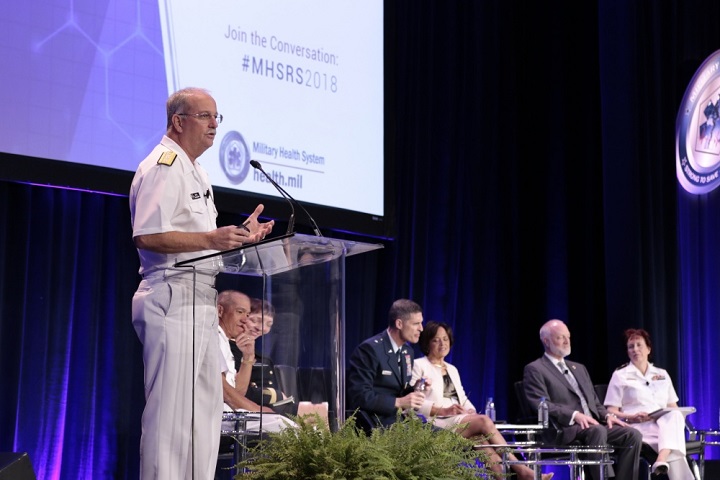
Navy Rear Adm. Bruce Gillingham, director, medical resources, plans and policy, Office of the Chief of Naval Operations, and other senior leaders speak at the general officer round-table discussion during the 2018 Military Health System Research Symposium. (MHS photo)
KISSIMMEE, Fla. – Leaders from Navy Medicine spoke about the impact of research and development and highlighted specific research initiatives during a Navy breakout session at the 2018 Military Health System Research Symposium (MHSRS), Aug. 21.
MHSRS is a scientific meeting focused on the unique medical research needs of the U.S. armed forces and their families. Scientists from across the Department of Defense and their partners from across industry and academia shared information about current and future research initiatives designed to improve the health, readiness, and survivability of warfighters, on and off the battlefield.
Navy Rear Adm. Bruce Gillingham, director, medical resources, plans and policy, Office of the Chief of Naval Operations, spoke to Navy Medicine researchers about the importance of finding solutions to the challenges Sailors, Marines, Soldiers, and Airmen face today and in battle spaces of the future.
“The next fight is going to be very different from what we’ve faced in past conflicts,” said Gillingham. “We need to look beyond the golden hour to the platinum ten minutes. What are we doing to stop the bleeding? What are we doing to ensure our hospital corpsmen have the training they need? I know you are all working on these and other fundamental issues our warfighters face. There’s a tremendous energy and enthusiasm in this room and it’s good to know people of your caliber are tackling these problems.
Gillingham also challenged the researchers to look to alignment – with the needs of operational forces and each other. He encouraged everyone to do all they could to take advantage of the opportunity MHSRS provides to meet scientists and partners they can work with.
“Innovation occurs through the collision and exchange of ideas,” he added. “Are we bumping into the people we can work with at this meeting?”
Echoing that sentiment was Navy Capt. Adam Armstrong, commander, Naval Medical Research Center, which has oversight of eight research labs located around the globe, who also spoke to the scientists gathered at the Navy breakout session.
“What I like about this meeting is that we can start conversations,” Armstrong said. “We can discuss different aspects of research and we can keep talking and exchanging thoughts. We can take advantage of the synergy in this room and bring it back to our labs and our research.”
In addition to comments from Gillingham and Armstrong, a panel of researchers highlighted a few of Navy Medicine’s current science and technology initiatives, including the use of bacteriophages for the treatment of multidrug-resistant infections, medical evacuations and en route care for injured warfighters, and treatments for motion sickness. These topics will also be presented by Navy Medicine researchers during regular breakout sessions throughout the symposium. Other topics that will be presented by Navy scientists include:
- TBI rehabilitation
- Telehealth for increasing access to behavioral health care
- Human performance and survivability in extreme environments
- Precision medicine in critical care for the injured warfighter
- Mitigating physiologic episodes in aviation
- The health and readiness of military families
Looking to the future and the Navy’s Indo-Pacific area of responsibility, military medical research and development will play an important role in finding solutions to the unique challenges the Navy and Marine Corps team may face in the maritime operational setting and disaggregated operations at sea and ashore.
Navy Medicine West leads (NMW) Navy Medicine’s Western Pacific health care system and global research and development enterprise. Throughout the region, NMW provides medical care to nearly 700,000 beneficiaries across 10 naval hospitals, two dental battalions, and 51 branch clinics located throughout the West Coast of the U.S., Asia, and the Pacific. Globally, NMW also has oversight of eight research laboratories across the U.S. and overseas that deliver high-value, high-impact research products to support and protect the health and readiness of service members.
Disclaimer: Re-published content may have been edited for length and clarity. Read original post.
MHSRS 2018 Tim Clarke
Video
8/23/2018

MHSRS attendees were asked about their impressions and thoughts on the symposium.
MHSRS 2018 Dr. Yvonne Maddox
Video
8/23/2018

MHSRS attendees were asked about their impressions and thoughts on the symposium.
MHSRS Young Investigator competition awards announced
Article
8/23/2018
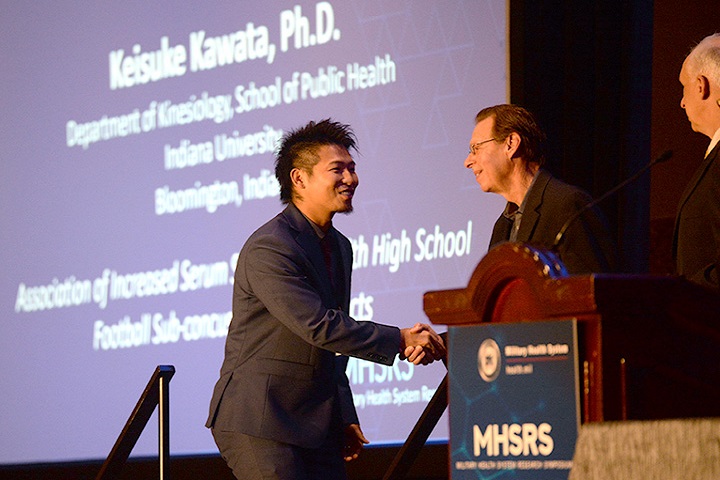
Three take top honors in highly competitive field
MHSRS 2018 Kyle Brandenberger
Video
8/22/2018

MHSRS attendees were asked about their impressions and thoughts on the symposium.
MHSRS 2018 MAJ Steven Adamson
Video
8/22/2018

MHSRS attendees were asked about their impressions and thoughts on the symposium.
MHSRS session focuses on war-sparked innovation
Article
8/22/2018
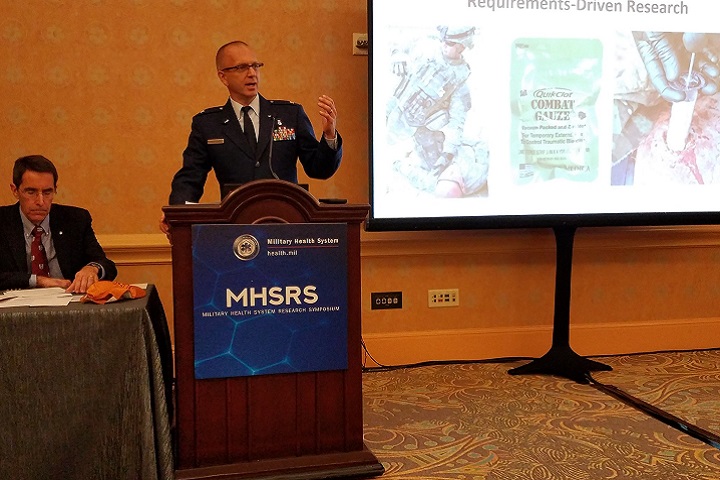
Pace called an extraordinary story of U.S. medicine
MHSRS 2018 CPL Michelle Ott
Video
8/21/2018

MHSRS attendees were asked about their impressions and thoughts on the symposium.
MHSRS 2018 Dr. Rauch
Video
8/21/2018

MHSRS attendees were asked about their impressions and thoughts on the symposium.
Awards honor distinguished service, individual and team research
Article
8/21/2018
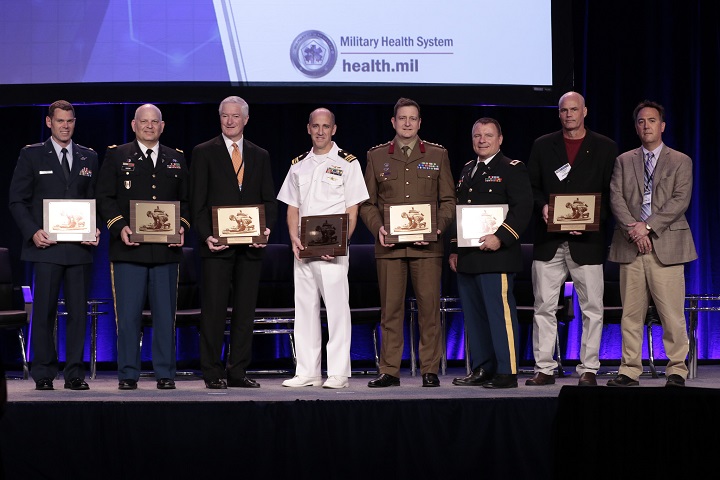
Three people, four teams recognized at symposium
Premier scientific symposium showcases medical research and development
Article
8/20/2018
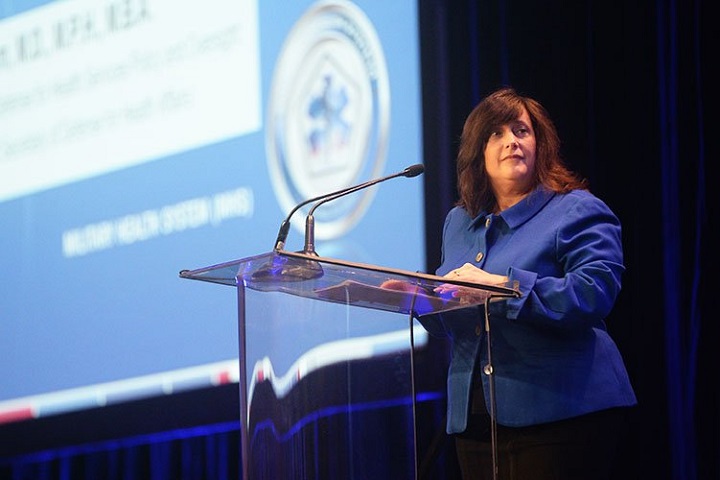
Researchers will present findings at Military Health System Research Symposium
Article
8/15/2018
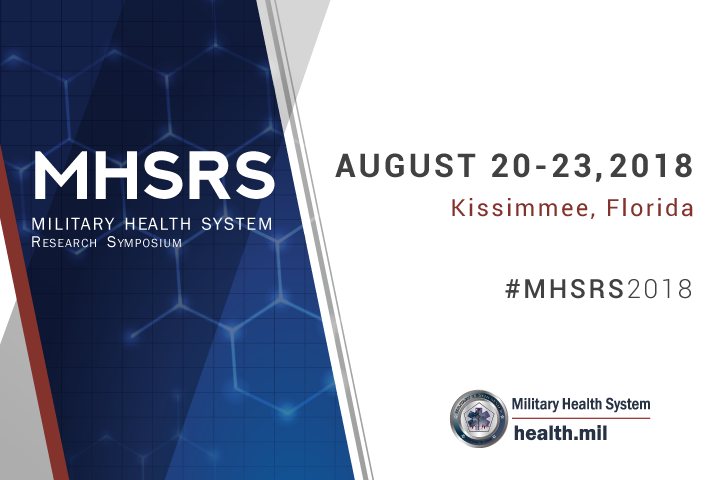
As the DoD’s premier scientific meeting, MHSRS helps to facilitate the exchange of information between almost 3,000 attendees
Medical research and development take center stage at symposium
Article
8/15/2018

Premier scientific meeting to draw 3,000 attendees





















.png)









No hay comentarios:
Publicar un comentario